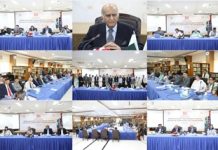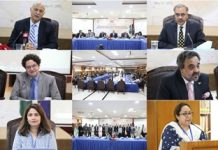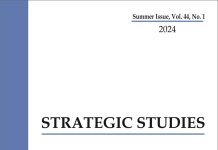Abstract
Globalisation is a process that encompasses regional hegemonic expansion and culture standardisation through technology, capitalism and world politics. By causing inequality and exploitation, globalisation, due to its economic and political components, has indirectly contributed in the spread of Islamic extremism, which is at most reactionary in nature. The pretext of neo-liberal agenda, which is being implemented through globalisation, has remained one of the primary motivations for repeated Western invasions and interventions in Islamic countries. In the post-9/11 world, unprecedented scrutiny of Islam and the Muslims, other than the massive scale of deaths and bloodsheds, around the globe began to emerge as a dominating theme. The vilification of the Muslim world and the religion itself suggests that the West has failed to live up to its liberal ideals and is ruling the world with double standards. Today, the religious extremism itself amidst the forces of globalisation remains few of the fundamental challenges facing the Muslim Ummah. The assertion that Islamic extremism is a response to Western political and economic domination is mostly rejected by many Western and Muslim scholars as a mere political discourse. There remains a need for academic and intellectual emphasis on this issue in order to enlighten the Muslim masses for better understanding, particularly in the age of the Fourth Industrial Revolution. This study analysed the extent of challenges posed by Islamic extremism and the evolving trends of globalisation, being shaped by the contradictory approach of the West, to Islamic civilisation. To navigate the complexities and turbulence of the present times, it maps out a middle path (Wasat) for the Muslim Ummah.













